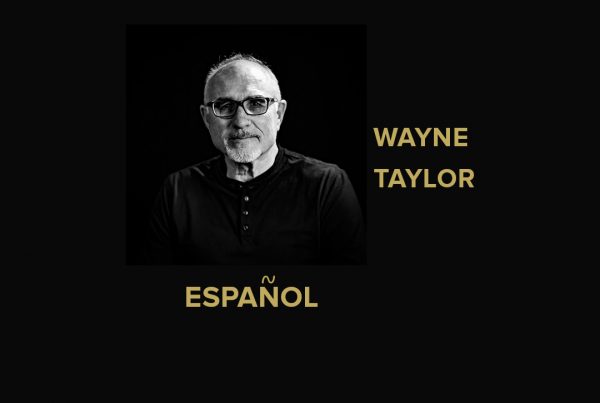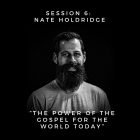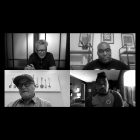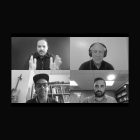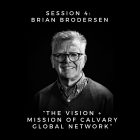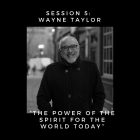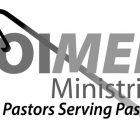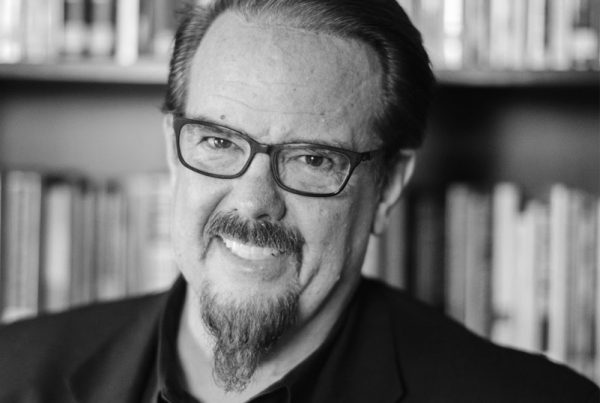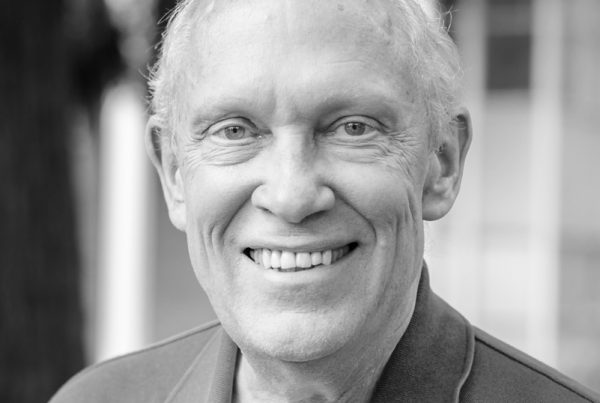About
Mike Neglia, Nick Cady, and Pete Nelson of the Expositors Collective sit down with Kellen Criswell to share their best practices and methods for Expository Preaching for the world today.
Audio Only
Transcript:
I am Kellen Criswell, executive director of Calvary Global Network, which is maybe important, maybe not. I don’t know. But really important. I am here for one of the installments of our exclusive content package or our essential church conference. I am here with the guys from the Expositors Collective: Pete Nelson, Nick Cady, and Mike Neglia.
And we are talking today, fellas, can I say fellas? I feel like that’s a sacred and holy term in our movement. Anyway, fellows, you’ve got to adjust it. I’m here with the fellows, talking about expository preaching in the world today. So thanks for coming. Good to hang out with you guys.
Nick and Pete: Good to be here.
Kellen: One of the things that I’m thinking about as we’re having this chat is just practicality. And I think one of the things that I’ve heard over and over about what people love about the Expositors Collective seminars and the trainings that you guys do is how practical it is.
People want to understand the theoretical side to expository preaching, but I think you guys have all communicated to me that what you mostly see, even beyond that, is that people really want to handle the Word well. They really want to know how to preach Jesus well, they really want to exposit the Bible well.
The intent of this exclusive content package for the conference is to be practical. I think it might be really helpful, and I think a lot of people would love to hear about your individual processes. What are the steps that you guys individually take in your approach to developing an expository sermon? Is that cool if we talk a bit about that? Pete, you want to jump in and go first?
Pete: Sure. I’ll look at the texts for the coming week on Sunday night because I like to forget about what I just preached on my sermon and not dwell on it, whether it was good or bad. I like to get the next pass.
Kellen: That’s the dark night of the soul for the preacher.
Pete: I’ll just read it easily and chew on it. I carry those yellow legal pads. I’ve done this for a long time, and I’ll start a running legal pad, and I’ll literally take it with me everywhere in the car, if I’m going to the market, if I’m running an errand here, and if I’m heading to the church. It will just be in my car. And I’ll just be meditating. I’ll observe the basics—observation, interpretation—and I’ll just be writing questions to myself. I’ll jot down “what’s this, what’s the context here?” So I have these running questions and ideas. And even sometimes during those beginning times, a cool outline will just jump out at me, and then I’ll adjust a little bit by weeks’ end. That’s the first step before any commentaries.
And then I use Accordance Bible Software (www.accordancebible.com), that’s the Bible software I’ve used for years and years. It works for me. I understand the workflow of it. And I’ll do my language studies and Word studies to make sure I’m reading it correctly, different versions. And then I’ll do some background stuff. I like the InterVarsity background commentaries because they are sort of a one-stop, cultural background and read like a commentary. They follow the text. I really like that. Then I’ll get the accuracy of the text firm in my mind first, and then I’ll start thinking about “what does this mean?”
And now I’m getting to the end of the week. And I think this process works even if you’re not full-time in the ministry. I’m making it like a week’s long task, but keep it going on lunch break, and set yourself up for when you do have time to be in the chair and really dig in.
When we train these preachers, some are in the ministry full-time, but many aren’t, and we want to give them tools that they can succeed with. So that’s worked for me over the years. I [also] think of illustrations and then make sure [to capture] the big idea.
We teach that as well. I want a sentence. I want this message, if I’m going through a book, I want that particular sermon to be boiled down to a sentence. What is this saying? You start and finish with that [main idea].
You teach the text and then after looking at the text, give a conclusion as well. So I want that big idea, then I want an outline. Nick he’d usually does our outline module, and he does an amazing job at teaching us how to do that.
And he uses a good metaphor of a map. You need to know where your destination is and how you’re going to get there. And the importance of outlines to help people. We’re there to serve people. We want them to walk out truly applying what the Scriptures are teaching.
And more than that, like Mike was stressing, we want them to be excited about this walk with God. So that’s basically how I do it.
Kellen: Thanks. What you were saying about the theme or kind of the thesis. That sentence reminded me of the first book I ever read on preaching and expository preaching was Biblical Preaching by Haddon Robinson.
That’s one of the big things. You want a bullet, not a buckshot at 10 million points. You want the point that the Spirit, by the Word has driven you to expose to the people. I always appreciated that. And so cool, man. Thanks. So how about you, Nick? What’s what are your steps, your process on the journey to developing an expository message?
Nick: Yeah. I used to be pretty haphazard about it, and I’ve gotten a lot more systematic with the help of a few books and ideas that have helped me along the way. But I would say I probably map out about four to six weeks in advance. That doesn’t mean I’m writing detailed outlines, but I like to know what I’m going to be doing and maybe have some themes identified for those. Make sure that I’m not just being repetitive, to make sure that I’m actually, like Pete said, we’re serving people and that’s what we want to do. So I want to make sure that I’m bringing out those themes that are in the texts, but also kind of have an idea of where I’m going.
It also really helps. I learned this from a guy who said in every message, he tries to give a teaser for the next message, and say, if you want to know more about that, we’re going to talk about that next week or two weeks from now. So that’s been one of the big benefits to it that I’ve found.
So I map out four to six weeks in advance broadly.
Kellen: You give them a bit of a cliffhanger then, huh?
Nick: Absolutely. It’s pretty much like any TV show you watch where it’s like at the very end, you know you have to tune in again. So then on Monday, I set aside two hours to do my expository work, and that includes just reading the text, going through it, looking at some literary stuff, like breaking down a language issue that I need to research. I’ll look at a few commentaries. I try to do that last, personally. And as I’m doing that, I’m writing notes. Again, I’ll try to have a big idea by the end of that two hours in one sentence.
One thing I’ve been doing recently and that I have found that really helpful (I actually picked this up Pilgrim Benham in his talk on mentorship), he gives his sentence, which is his thesis statement. And then he uses that as his outline to walk through the message. And I think that that actually takes a little bit of time to have, you know, a really solid sentence that you can actually use then to walk people through the message, but it’s definitely worth it.
So after I do that, I’ll try and identify what are the main points. What are the steps along the way on that map? And then at 6:00 PM every Monday, I have a team meeting with a group of five people. And we gather, right now we’re on Zoom, we used to gather in person, and we go through the text. I present my outline to them. It’s not really a group exegesis so much as it is, I’m asking them, I’m kind of bouncing it off of them to see how it lands, first of all. Then I’m also asking them for specific things. I’ll ask them to help me come up with good illustrations, cause people can only handle so many illustrations about my kids before they start to hate me a little bit. So it helps to have other people’s life experiences and have them come in and say, what about this story? What about this? That’s really helped me, early on in the week, to have that. By Monday night at 7:00 PM, I’ve probably done the bulk of it. The rest is honing, the rest is writing down details and filling out that outline.
But I’d say by 7:00 PM on Monday, I’ve got an outline that, if I had to, I could stand up and preach from. And so throughout the week, I have milestones and I try to divide up my work because I used to just push it all off until Friday and then freak out and then tell my wife that I wasn’t cut out for this and all that. So it’s gotten a lot better, and she’s a lot happier, and I’m a lot happier.
Pete: Your kids are going to have that talk with you someday. I remember when my kids said, Dad, we need to sit down and talk with you. They had an intervention meeting with me, and they said, Dad, no more. I said, Okay, you got it. That was the end of my … it’s going to happen around middle school.
Kellen: And secretly, we’ve all hated other preachers who talk about their kids so much.
Pete: One thing I’ve been doing lately that has changed over the years. … When I was younger, I had about seven pages of notes.
And this was all like collection, but over the years, my notes started shrinking in page size.
I’d write it out. But by the time the message time came. I didn’t want to be so locked in. I know people who write [their messages] out verbatim, and they do well. I don’t do it well. And lately, over the last few years, I type out my whole message as if it’s ready to go. I could print it out and preach it or put it on my iPad, but lately, and this has really worked for me, I feel a lot of freedom in it because I’ve been in this text all week. It’s in my heart and in my head. I get up Sunday morning and I’ve got it on the computer, but I write it. I write out my outline by hand on either one or two pages, and I found it to be beneficial. I don’t know why. There’s something about putting it to paper.
Kellen: I think that’s a great point. That’s part of this journey for everyone. I know as a preacher, you start not knowing what you’re doing and kind of doing what you see your favorite people doing, but then through the process of practice and time, you start to learn those unique things about how God’s made you to assimilate a text or the meaning, things that end up shaping your delivery.
But they’re as unique as we are. I think that’s cool, just that tip and principle to let God guide you in discovering what those things are for you in the best way to approach preparation. That’s great. So how about you, Mike? Jump in man. I’d love to hear about your process of going toward the expository message.
Mike:
Thanks, Kellen. I get to do a lot of interviews for the podcast, and I get to ask preachers this question, you know, 114 times …
Kellen: Well, give us your answer.
Mike: Well, listen, I’ve collated all of them and here’s the most statistical likely …
It is wonderful even just listening to how Pete does it versus how Nick does it. And I’m not saying versus as in they’re opposed to one another, but just that spectrum. I include a lot of factors that they do. In fact, I have next to me my notebook, which I carry around that I’ve blocked out the next 40 sermons I’m teaching through John.
And so each Sunday, each sermon has a page on here, and this book is always with me. And so I have little scribbles or thoughts that go out in the next couple of weeks. And so it’s nice to have that. That’s something that similar to Nick. Nothing too special. I have a lot of overlaps with a lot of what other people do, trying to start with the text itself.
I try to read the passage out loud as many times as possible. I heard someone say that he doesn’t open a commentary until he’s read the passage out loud 30 times, which is really good if you’re preaching a paragraph, you know, but if you’re doing a larger sermon, then that’s probably not going to happen.
But I do try to, not just read the passage, but hear myself reading the passage. So that’s something that I do before I crack open other stuff. I try to write my notes. I try to talk with other people about it. I have an ongoing discussion with my worship leaders actually. We have a lot of musicians in the church, and I talk with them, kind of a group chat with them, and we try to pick songs that match up with the themes. But then I find just talking about it with them gives me new ideas, and hearing their thoughts and then hearing the connection that, as I’m looking at the passage and talking it over with them, about how this inspired worship is a wonderful thing.
It’s good for my heart. And then I think it brings things out because the point of this is, the Bible isn’t just there for us to obey it, although there are calls for us to submit to its authority and have it change our life. But God communicates Himself to us that we might know Him and worship Him. And so that conversation with worship-minded people brings it out to me.
I also, once I have my sermon notes written, usually by Thursday, although the days are all changed now because I pre-record on different days, but on a normal week, by Thursday, I have my notes mostly done. And then I put it in a Google doc and then send it to my elders. And then the worship team gets it. And then women’s ministry director and a few other people within the church. And I ask them to read it and make their own comments. And not everybody does. In fact most of them don’t. But some people do read it and then give me some feedback or sometimes pushback.
It’s good to get perspectives from different kinds of people on the passages. And then, same with Nick. If it’s up to me, I’m just going to give cute stories about my kids to illustrate every single point. That’s just my life. And it’s good to have people say, well, you know what? There’s a story about Napoleon that could go here. Or that reminds me of this event in Irish history that really fits well here. And so that helps expand my world of illustrations.
Pete: I didn’t know you had a son named Napoleon.
Mike: Yeah!
Kellen: That’s good Pete, thank you.
And then there’s that final connection that I try to do, even between that act of like worship and the sermon is I wake up really early on Sunday mornings and my notes are basically done. But I try to do the final tweaking drafts at like 4:30 AM on Sunday morning. But I’m listening to a playlist that we’ve made of the songs that we’re going to be singing that morning and try to be listening to the songs that we’re going to be singing and then seeing connections.
So I really consciously try to quote the lyrics of the songs that we’re going to sing in the message itself, really highlight that connection between the text and our lives and then the worship that we offer to God. So, and there’s a bunch of other stuff that happens too. I’m trying to highlight a few unique aspects of what I do.
Kellen: A couple principles I’m hearing is that there is a common goal you all share, this idea of exposing what Scripture is actually intended to say in the text that you’re in to the people with the Christ-centered connection. And I think there’s a methodology, there’s a science aspect to that, but there’s also a personality piece to this.
And so there’s a common goal and there are some common methods, practices that you all share, but then there’s a uniqueness to it, partly based on your personality. But then to take it a little further into the next thing I would love for you guys to comment on is that the unique aspects, it’s not just your personality as individuals, but it’s your relationship to God and the Holy Spirit and the way that He uniquely works in your life.
And I think sometimes we make a false dichotomy out of Spirit-led, Spirit-empowered preaching, and academic, scholarly, methodological approaches to expository preaching. And so this is really for all of you guys. I want to ask you this, and then one other thing as we head toward wrapping up. But so any you guys want to comment on that?
There’s the kind of practical, methodological side to this, but the engagement of the Holy Spirit with you as a person and even the place of some of the gifts of the Spirit, like prophecy and knowledge and wisdom. I think we’re continuationists here. We believe all the gifts of the Spirit mentioned in Scripture are for the church today and beneficial for the church today. And certainly there’s a correlation with this thing of preaching. So again, where is the Spirit engaged this process with the science side also of moving toward expository preaching.
Mike: Well, I’ll just jump in really quick. I wholeheartedly reject the idea that Spirit-led preaching is limited to moments of spontaneity in the pulpit.
Sometimes we think, The Spirit needs to move and plant something brand new in my brain in the moment during the preaching experience. I believe that the Spirit of God can guide us and inform us as we’re at our desk, as we’re doing our second draft, as we’re submitting it to them with the other leaders in the church, and speaking through them as we’re refining it.
So there is a time, of course, He can interject or interrupt in the middle of the sermon with a fresh thought; yet I get, nervous is the wrong word, but I hate to think that sometimes people get the impression that Spirit-led preaching is when we deviate from our notes to say something unscripted and unprompted.
In reality, we’re so dependent upon the Spirit, and when we have our concordance open, when we’re looking into the Word, we’re just as dependent upon the Spirit as in the act of preaching itself.
Kellen: Great. Any other comments you guys would like to make?
Pete: Yeah, from start to finish, every ounce of revelation that we get from the Scriptures is from the Holy Spirit.
That starts from the moment we first look at the text, and every ounce of understanding and revelation is all the work of the Holy Spirit and that carries us all the way through. And that goes to the people as well, how they’re hearing information, but what’s going on inside, that’s not me, that’s all the Holy Spirit.
Kellen: It’s amazing, isn’t it, how, like we talked about the idea earlier that you’re going for that big idea and how, all of us have preached to groups of varying sizes, but in some cases, you could be speaking to 10,000 people, and you could make one essential point, but all 10,000 of them will get a unique, nuanced application into their lives. And if you’re self-aware at all, humble in the gospel at all, like you’re saying, Pete, you’ve got to know that ain’t you doing that! That’s the Spirit of God taking that and making it relevant and real or showing the relevance of it to everybody’s individual lives.
Yeah, go ahead, Nick, sorry.
Nick: I was just going to add that, having a method, I don’t think, precludes the work of the Holy spirit at all. Because what happens is through this idea of divided work, if you are doing a lot of work on the front end, that leaves you whole days, and this is what I do, I run a lot.
And so as I’m running, I will have done all this work ahead of time. And then as I’m running, just praying, and the Spirit will guide, This is the thing you need to focus on, or here’s the phrase. So I’m absolutely completely dependent on the Holy Spirit, and at the same time, trying to do good preparation.
Kellen: Anything else you guys want to say? Pete, did you want to add any other comments on that?
Pete: The Holy Spirit operates in truth, and getting the truth of Scripture is part of the method. Through all this hard work, we’re being guided by the Holy Spirit into truth, but we’re unpacking the truth of God, of Christ, and the Holy Spirit operates in truth. And so the same Spirit that’s in me is the same Holy Spirit that’s in you. And when truth is proclaimed, you bear witness, the Spirit in you bears witness to the truth of Scripture. And that’s the goal.
Mike: I’ve heard people say, almost to be joking or not, but if they’re really unprepared to teach, they’ll say, Well, I really got to trust the Holy Spirit for this! And it’s like, man …
Kellen: Unlike usual …
Mike: We have to trust the Holy Spirit when we’re prepared, when everything is done, that also is an expression … we’re depending upon the Spirit even when we’re prepared; He’s not just our hall pass in case we don’t do a good job.
Oh well, I’m going to trust the Spirit on this one. No, we trust the Spirit in the study; we trust the spirit in the preparation and the delivery as well.
Pete: But there are times where, you know, I call it the endless merciless cycle of Wednesdays and weekends. Sunday’s coming, you have sick kids. Your dad goes to the hospital. Sunday’s coming, and there are those times when I didn’t have time because of this tragedy. And I feel a little under prepared, and it’s okay to even tell your congregation that. And God has met me. He’s taken what’s already in there. Now this is very rare, but things have happened, and I’m grateful for God being with me and helping me with that, you know?
Kellen: Yeah, I appreciate you saying that, Pete. That’s obviously different than saying, I’m not really prepared; I was eating chips and playing Halo this weekend, and I just didn’t have time.
You’re talking about we know we didn’t lack preparation just because we were wasting our time. But in the reality of ministry, most of it is what you’re talking about, it’s tragedy, it’s counseling, it’s people stuff. And as you’re in the heat of normal ministry stuff, there are just those weeks.
I didn’t get that 15 hours. I didn’t get that 10 hours or whatever it is. And we’ve all walked into teaching situations and felt, not because we’re being irresponsible, but because we’re being responsible, that we didn’t have the time we would like and then seeing God come through. And that’s amazing.
But I think part of that temptation that guys have a new crossroads when they hit that moment. Are you going to now start thinking that that’s the way it’s going to go every week? And so you can just take a break on your seriousness and your approach to preaching. And that would be, I think we’d all agree, the wrong approach, right?
Pete: Yeah. And people know too. They can tell.
Kellen: What’s up with you?
Nick: Yeah. When you do all worship Sunday too many times in a row.
Kellen: I just felt like we needed to have a prayer meeting this week.
Mike: There’s only so many times that you can feel led to share your testimony.
Kellen: So maybe we transition one more time here. And again, this has been an awesome conversation, you guys. I really appreciate you taking the time to share a lot about your personal stories with this as well. I think it is going to be helpful to people who listen.
But you know, we’re talking about expository preaching. A lot of this is stuff that we’ve been doing for years. It’s been your process, your approach, your practice. And yet all of us also know that in the last few months, on a global scale, very few things have been normal, even in the world, or preaching for us.
And so people watching are not going to need me to point this out. It’s been a pandemic. I think everyone on this screen has been in situations where you have been unable to have in-person, at the building or your meeting location, whatever that may be, kinds of gatherings of the church, even preaching online, preaching through screens, and for me, this has been an interesting time where I think the church is having to ask questions about blind spots that we never even knew we had about the real essence of the church, the foundations of corporate worship, and even preaching and things like this.
And so, again, as we’re moving toward wrapping up here, I would just love to hear from you guys a bit. What has stayed the same and what has changed? And as you look forward, with the possibility that these kinds of global dynamics remain or come back, as this coronavirus thing we’ve been dealing with is still around with no end in sight, I guess that would be the question. What’s stayed the same? What do you think has changed? And as you look forward, what’s going to go back to normal. And what do you think might actually stay the same from what’s become the new normal for you? Does that make sense? Or is that too convoluted?
Pete: We were forced to change. I don’t pastor a huge church, so we aren’t as dialed in technologically, but it forced us to really get our act together. And that was a good drill for us, and now, it’s the new normal. That is good.
I’ll tell you, when we started coming back together three weeks ago, and it’s been a delight. Our church is the most Pentecostal it’s ever been. People are just stoked to be there, and people are just singing louder than they’ve ever sung and engaged more than they’ve ever been engaged. They just appreciate being together. You just take something away that’s essential for a period of time, and you really understand how critical it is. To me, what happens after the sermon is just as important as the sermon. I have a very eerie feeling when the sermon is over and the place is empty in a matter of minutes.
And I call it the millage factor. I call it millage in the village. And I so love enjoying as a pastor seeing what happens with the body post-service. And for me, that’s just as important as the message. It’s almost like the fruit of the message.
When you read Acts 2:42, it’s all of it the apostle’s doctrine and fellowship. For you who have not gotten back together again, just wait for a fun time. It’s been a blast.
Nick: If I could jump in, I’d just say that I think the thing that’s really come out of this for me is the importance of local church, because there are a lot of better produced videos out there that people can watch and tune in to. And yet a lot of our people, I would say the great majority, have stuck with us. They’ve tuned in weekly. They’ve watched the messages; they’ve participated in the things. And I think that actually, while we’ve gone online, that has been the thing that I think that has been impressing me.
And also I think that the thing that’s really hit home with our people. And I think this is true, not just in our church, it’s that people realize, Okay, when this happens, I could go online. And yet here’s this local church that I’m a part of, even if I’m not there in person. And I think that that is really valuable. I think people have seen it, and I think it’s going to be more valuable.
I think they’re going to value it hopefully more as we move out of this phase. And if we come back to normal, whatever the new normal looks like, one thing that we really focused a lot on was personal contact. That was a ton of work because we’re not a huge church either, but a couple of hundred, and we made sure on a couple of occasions to actually have opportunities for personal contact because being able to touch base is really important. So whether it was handing out things at the church, where people could drive through and pick up, whether it was actually sent people to different homes, that was good.
The other thing is that remembering that kids have been in the room, and actually now that we’re not doing children’s ministry being back, having kids in the room, it makes your preaching tighter. I had some kids in the front row this past week, and their parents asked me what I thought about it, and I loved it. It’s a barometer because the adults will fake it. They’re tuning out; they can get by, but the kids don’t even try to fake it. You know, large yawns.
Kellen: They give you that eye roll.
Nick: Exactly. When I write my message, even that main point, like how I’m doing it, I want to make sure that from the smallest to the oldest, everybody walks away knowing what that text was about.
Kellen: That’s great, man. Interesting. How about you, Mike?
Mike: It’s hard to add very much to what’s been said. Church is essential. We’ve really seen that. And I wholeheartedly agree particularly with what Nick has been saying. There are better produced, live streams that exist, and there’s better preachers out there. There’s Matt Chandler and Aaron Campbell and whatever, and they’re there, but my church keeps tuning into me. So church is essential. Preaching is essential. But then it turns out that hear the Word of God from your …
Kellen: Relationships are essential.
Mike: Yes, so as relationships have been muted or paused or complicated anyway, people do want to connect with the the local church. They do want to hear God’s Word preached and addressed. And it’s probably more important that they’re hearing it from somebody who knows them and cares for them and prays for them because the megachurch pastors don’t know you and pray for you. They probably pray for the world.
Kellen: Well, mine does. He’s going to be watching this.
Mike: Hi Brian. You pray for Kellen, right? So church is essential. Preaching is essential. And relational connections ties those things together.
Kellen: I would resonate. We’re all in different church contexts. I am at a megachurch, and so it’s been a unique animal to work through this process. And that’s been one of the biggest challenges is body connectedness because that’s a challenge all the time in normal circumstances.
It’s a challenge in every size of church, but obviously when you have a few thousand versus a few dozen or something, it’s even more challenging because we are just isolated. It’s impossible to know everybody in meaningful ways. And I agree that while it’s been crucial for people to have the resource and ability to tune in to hear pastor Brian preach and all of that, and that’s essential, like we’re all saying. But some of the things that have been really most impacting for people is one example. We have a database of around 20,000 people who have indicated that they’re connected to Calvary Costa Mesa in a meaningful way throughout history.
And our executive pastor, Jordan, started an initiative at the beginning of this, that everyone would get a call. And so we developed a team and we ended up making, I think 14,000 calls after the list was curated, and we weeded through doubles and everything else and called everybody on that list and the divine appointment, crazy things that came out of that experience. But the way it connected and blessed people, because of the personal connection, was beyond destination. And I think, you know, this is a different interview and this is a different conversation in some ways, but as this kind of new normal persists, I think that’s the kind of stuff we’re going to have to be praying about. As we keep the message going out in creative ways, how do we do meaningful connection in creative ways and keep that going?
So, yeah, it’s a crazy new day, isn’t it?
Mike: Hey can I Nick a question? I heard you say this on the Ryan Huguley episode. You quoted Tim Keller. Do you remember that? You said that like something about the relationship … do you remember that quote?
Nick: I have it written on my whiteboard right here. Here it is. Tim Keller uses this metric. I don’t know about the accuracy of the number, but he says in churches under 200 people, people let you preach because of how you pastor. In churches over 200, people let you pastor them because of how you preach.
And so I think that’s an important dynamic to keep in mind.
Kellen: That’s good, man. We’ve had a few conversation, some of us on sidebar conversations about these things, but one thing I’ve said to myself and to others is I think that this moment has simultaneously proven two things. One is the absolute usefulness of technology for ministry. That’s a thing. But it’s also simultaneously proven the total inadequacy of technology for things like really healthy, whole, human connection and particularly as the body of Christ. And so I think both in preaching and then just general shepherding care, those two realities of the poles we have to wrestle with as we move forward.
So thanks a lot. This has been a great conversation. I hope it’s been valuable for you guys. Always appreciate you guys stepping in to help lead and train the people. We are all part of the Calvary Global Network. And we’ve got so many great friends and leaders out there, but a lot of specifically the aspiring Christ-centered preachers. It’s amazing what God’s been doing with you guys and the Expositors Collective, really raising up and rallying this kind of a budding movement, if I may be so daring to say is connected to you guys. And it’s a really beautiful thing. And I think the church and the world is going to be better off in meaningful ways because of the work God’s doing through you guys to focus people on the gospel and focus people on Jesus and the preaching of the Word, and whatever methods those things are coming through, whatever mediums they’re coming through in the future. So thanks a lot to you guys for what you’re doing and being a part of this this conference.
Mike: Thanks for your kind words.
Nick: Thanks, Kellen.
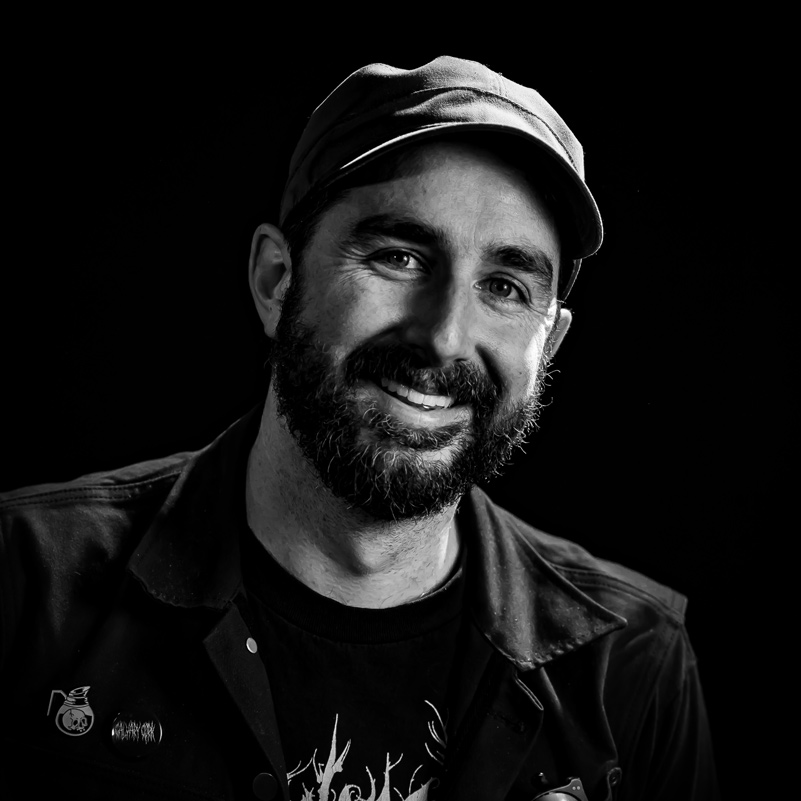
Mike Neglia is the lead pastor of Calvary Cork located in Cork, Ireland. After graduating Bible college in Siegen, Germany, in the summer of 2002, he served at Calvary Cork as a full-time missionary youth outreach coordinator/assistant for two years before taking over as lead pastor. In 2005, Mike and his wife, Rachel, relaunched Calvary Cork from a small core group meeting in their living room. Since then, the church has grown in health and vitality, serving as a spiritual home to many university students, families, and more. Mike also channels his passion for Christ-centered expository preaching by serving on the steering committee of Expositor’s Collective and hosting their weekly podcast.
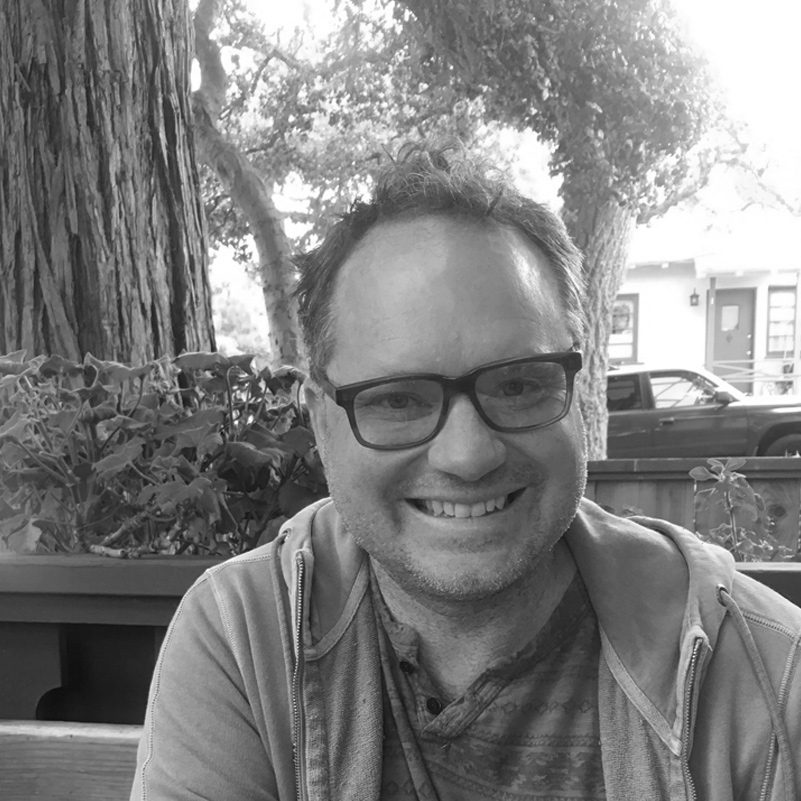
Pete Nelson is a pastor, musician, and evangelist. Pete Nelson’s worldwide travels have given him a unique perspective on the church as well as the global need for the gospel. Pete’s previous pastoral experience includes: senior pastor at Calvary of Albuquerque; founding pastor of White Fields Community Church in Longmont, Colorado; and teaching pastor at Calvary Chapel Costa Mesa. Pete recently planted One Love Church in Sydney, Australia, and is now currently planting One Love Church in Thousand Oaks, California.

